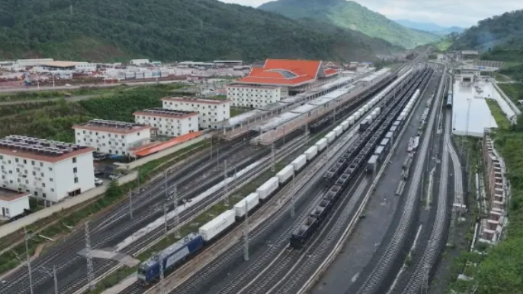Pakistan's import and export business is facing major problems as India refuses to accept goods dispatched from Karachi or Qasim or Pakistani terminals in South Asia for transshipment to any of its ports.
According to media reports from Islamabad, this has led most shipping companies to suspend direct services between mother ships and Pakistan and deploy feeder vessels to Pakistani ports and terminals.
Shipping company officials in Mumbai confirmed that for security reasons, ships that have been to Pakistan are not allowed to enter any ports in India. And vice versa. The resulting problem is that shipping companies have cancelled direct vessels, which will lead to delays in cargo transportation, reduced capacity and increased costs.
The trade problem for Pakistan lies in the fact that the Mundra Port in India is mainly used for shipping to Europe, and Pakistan is now denied access.
Emergency surcharge
Shipping companies now use the Colombo, Salara and Jebel Ali transshipment ports to send goods to Pakistan. To make matters worse, shipping companies have begun to charge emergency operation surcharges. The insurance premiums for ships bound for Pakistani ports have increased, and all parties involved in any shipping transactions with Pakistani sellers require bank guarantees, all of which have made their situation even worse. A trader said.
The imports and exports of Pakistan are in a dangerous state. S Chandrasekaran, a trade analyst in New Delhi, said that the impact of supply chain disruptions, including water, from energy to agricultural inputs, could cause profound socio-economic discontinuations.
Pakistan's economy has fallen into difficulties and may face import problems of key equipment, raw materials and machinery, while the export of food and textiles may also be affected. This comes at a time when its rupee is depreciating against the US dollar. This week, the exchange rate of the rupee against the US dollar dropped to 282.77, compared with 280.79 on April 30.
After India took action against a terrorist camp in Pakistan on May 7th, shipping companies such as COSCO Group and Orient Overseas Line suspended their operations. However, COSCO Group will resume its business from Hong Kong to Karachi on Thursday.
The advantages of Indian rice
India's actions have now led to a backlog of export containers at various ports in Pakistan. A report from the Port of Karachi said that under normal circumstances, there were delays of 2 to 3 days because timber and rice ships were already queuing up. For vessels with preferred anchorages, the delay is one day. In the coming days, delays may vary in a short period of time, depending on the newly declared arrival time. It is written in the report.
The shipping predicament in Pakistan is expected to give India an advantage in the rice market. Rajesh Jain Paharya, an exporter from New Delhi, said, "After the dispute with Pakistan, the price of Basmati rice in India has risen by 20% in the past few weeks." In the United States, the price of Basmati rice from India once remained at around $850 per ton, but now it has risen to $1,050 - $1,100 per ton. The offer from Pakistan is 1,075 US dollars.

Last
Customs sniping! Smuggled goods worth approximately 28 million were transported to Macao
Recently, the Hong Kong Customs of China cracked a case suspected of smuggling by inland waterway vessels and seized a large quant

Next
China-Laos Railway Hits 60 Million Tons Milestone, Boosts Regional Trade Efficiency
As of May 22, the China-Laos Railway has transported over 60 million tons of cargo since its launch, including more than 13.9 mill
